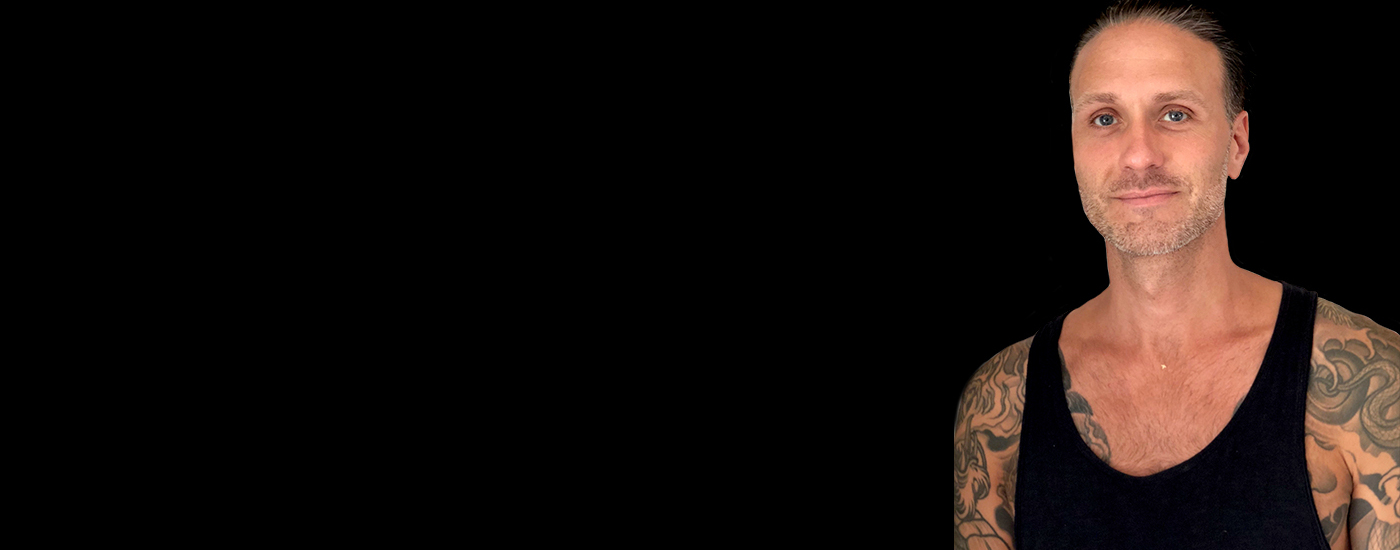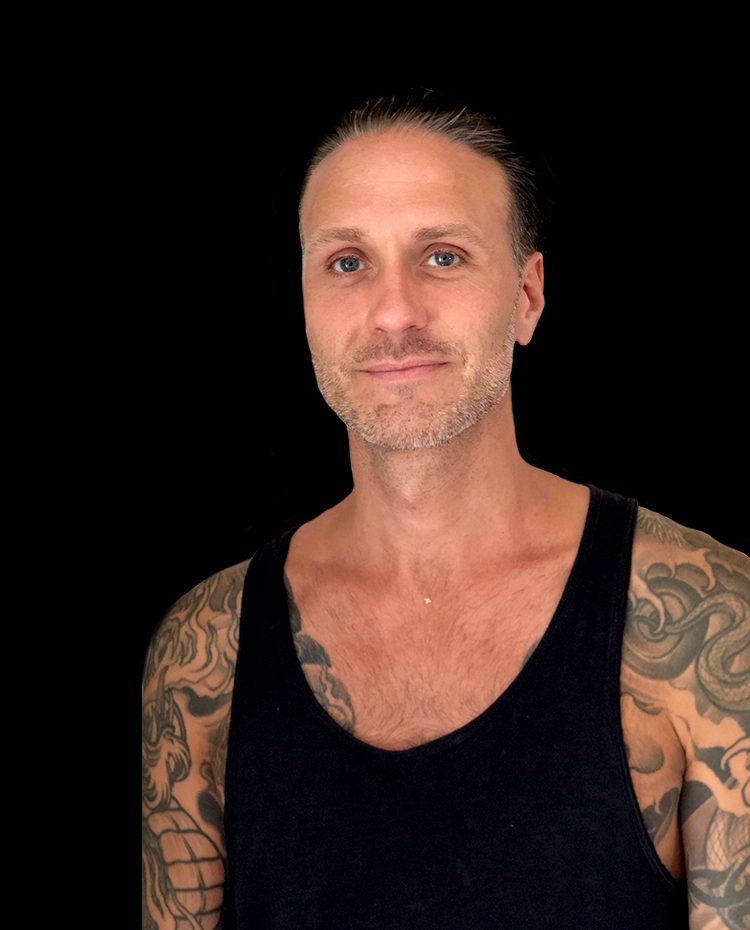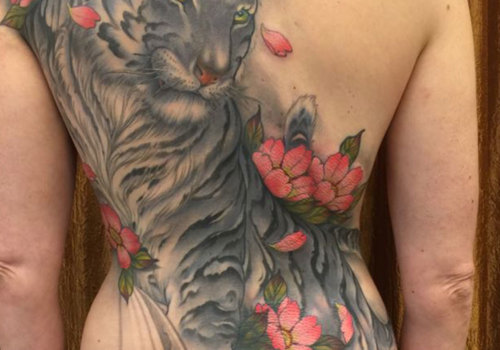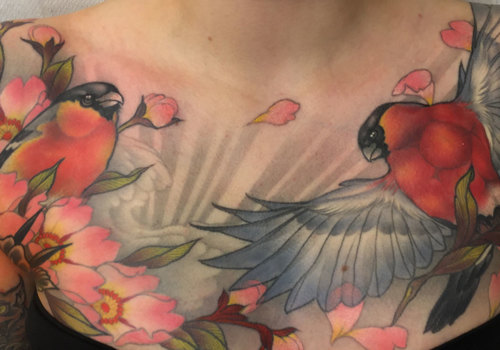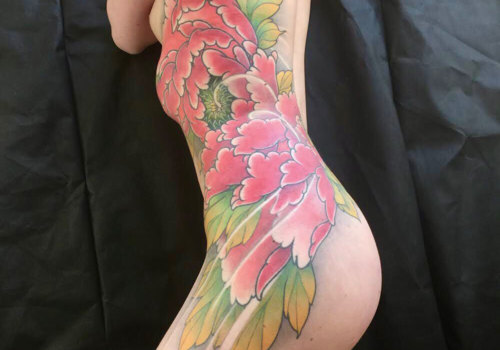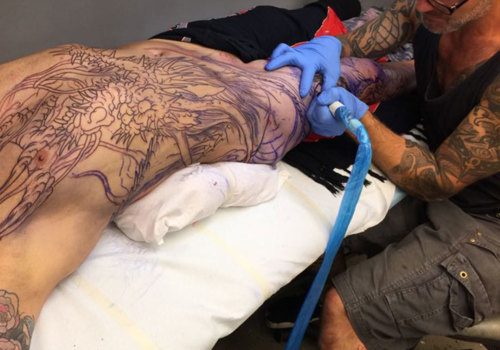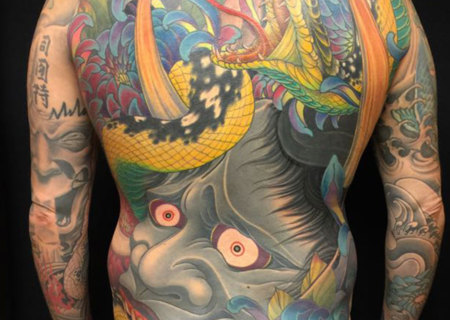
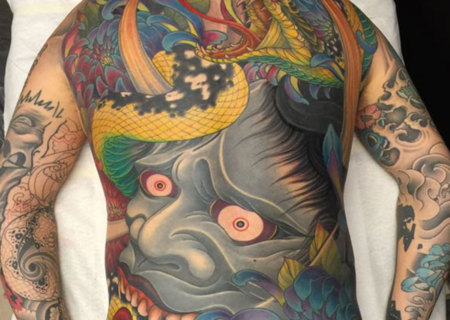
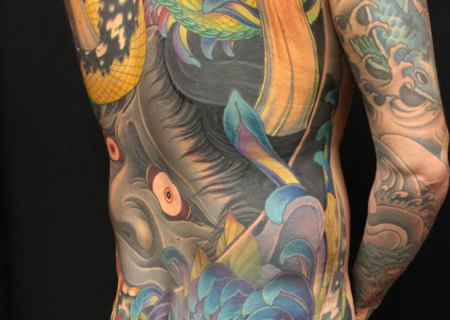
– I used to do a lot of competitions at the very beginning of my career, I think that's important for making people go to you before you've made a name for yourself. But I think it's hard to compete in music and art, what's good is up to the beholder. Something I appreciate about Instagram is that I find loads of tattooists who are insanely good without being famous, and there they get the same recognition without competition. I'm somewhat against competitions, to be honest. Everybody has a choice, but I would never ask a customer to compete using my work. I do understand that a convention needs to offer its audience more than just going around watching people get tattooed, but I still find competing a bit weird. It may even be dangerous. Suppose that I've done a sleeve on you, that you're very pleased with. Then you enter a competition with it, and may not even get third prize. If you're not very strong mentally, you may think that ”maybe my tattoo isn't so good after all.”
What do the tattoos on your own body mean to you?
– I have a family tattoo with all our names. Then it obviously is fun having tattoos by people you like. But for me tattoos are more about art, me finding it beautiful, than it meaning anything. If I look in the mirror it's like a little history book on myself. For instance, if I look at my left arm I remember when me and a friend went to see Filip Leu in Switzerland. But meaningful in any other way – no, it really isn't.

